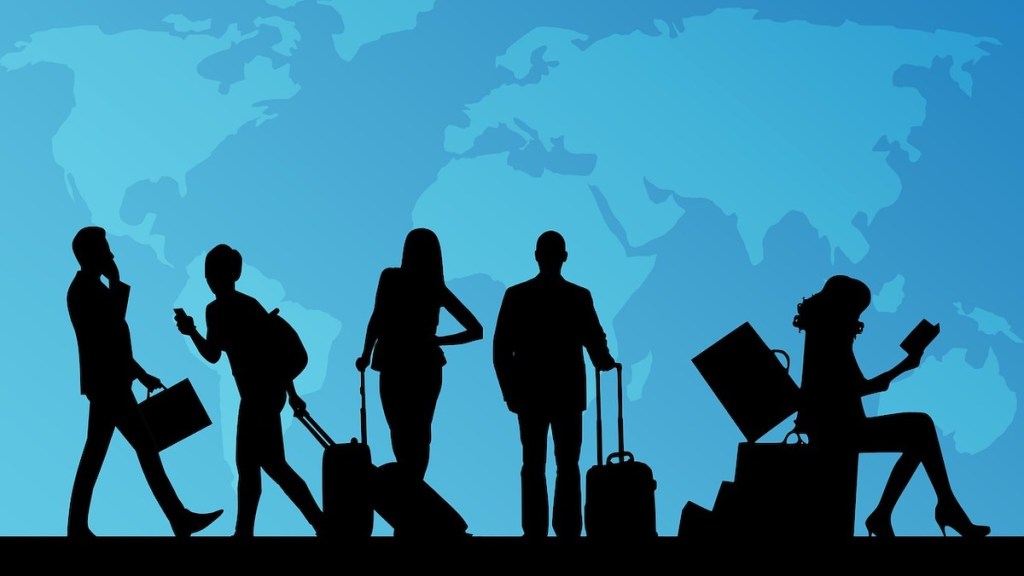In recent years, particularly after the pandemic, a new word has entered the lexicon – Travel shaming. Earlier, travel shaming meant blaming travellers for worsening issues such as global pollution. In 2020 and thereafter, it has come to signify travellers who spread disease, more specifically COVID-19. To understand it better, we got in touch with Akash Dahiya, Co-Founder, SanKash. Here’s what he has to say:
Myriad Shades for Shaming Travellers
Consequently, in the first two years of the pandemic, tourists were worried about being censured for travelling while others remained confined indoors. Undoubtedly, travel shaming touched new heights during the pandemic as a plethora of emotions were connected to the risks arising from travel. The ubiquity of social media also gave additional impetus to travel shaming.
As a result, many people ended up cancelling vacations booked earlier or even trips to visit their loved ones. During the peak pandemic period, travel shaming was especially driven by people who were confined within the four walls and become upset watching others enjoying non-essential travel.
Most of the travel critics were angry, envious and insistent that it wasn’t fair to others who were following all COVID-related restrictions. The basic reaction – if we could give up something important, why can’t the others?
Paradoxically, travel shaming was sometimes done by the travellers themselves! Self-travel shaming happened when travellers felt ashamed or guilty about their travel decisions even when the shaming was not being done by others. This is what happened with an American writer who couldn’t take the pressure of being indoors for months together. Driven by the urge to go somewhere, she and her husband decided to spend a few days in another city.
Unfortunately, her vacation was more stressful than rejuvenating. Besides always being on guard, she kept washing her hands often. What’s more, her social media behaviour also changed since she didn’t want to be perceived as selfish and irresponsible. This meant not posting photos showing people without masks.
But travel-shaming cohorts were missing one point – some people had no choice about travelling due to family issues or work-related requirements. For instance, some were travelling to attend the last rites of loved ones who had fallen victim to COVID-19. By no stretch of the imagination could these people be considered selfish for travelling. Moreover, people who refused job-related travel ran the risk of being thrown out of employment. The owner of a travel agency asserts that those who travelled during the pandemic while doing so safely were in no way selfish.
Not surprisingly, a survey by Ketchum in June 2020 noted that 67% of the respondents would judge people for travelling before it was deemed ‘safe’. Likewise, more than 50% of those surveyed said they would censor their posts to avoid being travel shamed.
The data also revealed people were censoring their vacation posts. Compared to the average number of posts in 2017, 2018 and 2019, mentions of vacations and holidays had fallen noticeably, dropping 65% in July 2020 vis-à-vis the average percentage in the three prior years for the same month. Additionally, conversations on vacations were more inclined to carry a negative tone, unlike the previous year, partly because of conversations shaming people who travelled despite the pandemic.
The Bounce Back and Therapeutic Effects of Travel
Conversely, the months spent indoors led to many people longing to travel even though the pandemic was not over yet. In fact, the longing for travel reached an all-time high during this phase, which is what led to the phenomena of revenge travel the moment restrictions were eased as people seemed eager to make up for the lost months.
As one looks back on the dark days of the pandemic, it is apparent that critics overreacted in travel shaming people. The reaction was partly driven by social media, where everyone seems eager to judge the actions of others. Some of the travel flak could have been justified if people were not travelling safely and responsibly by not using masks or adhering to other pandemic-related protocols. However, strident travel shaming was no doubt an overreaction.
Once pandemic restrictions were eased, however, people grabbed the first option to travel to select destinations, overcoming their fears and travel-shaming concerns that had become synonymous with travel. Thanks to the bounce back in sentiment, international travel dominated the itineraries last year with destinations such as Maldives, Thailand, Dubai and other locales being some of the favourites. This year has seen a surge in bookings to Europe.
Significantly, when international travel was yet to open up completely, many people were choosing to visit domestic destinations. Meanwhile, Honourable Prime Minister Narendra Modi gave a fillip to local tourism by urging people to travel to at least 15 tourist spots within the country in 2022, noting that there was tremendous scope to improve the nation’s tourism segment.
Finally, as the world emerges from the overall grip of COVID-19, it is clear that the pandemic has made many travellers more responsible. Furthermore, one should not forget that empirical evidence shows that travel has therapeutic benefits. Therefore, it is time to put the dark days of the pandemic and travel shaming behind us and move on with our lives by once more embracing the joy of travelling.


